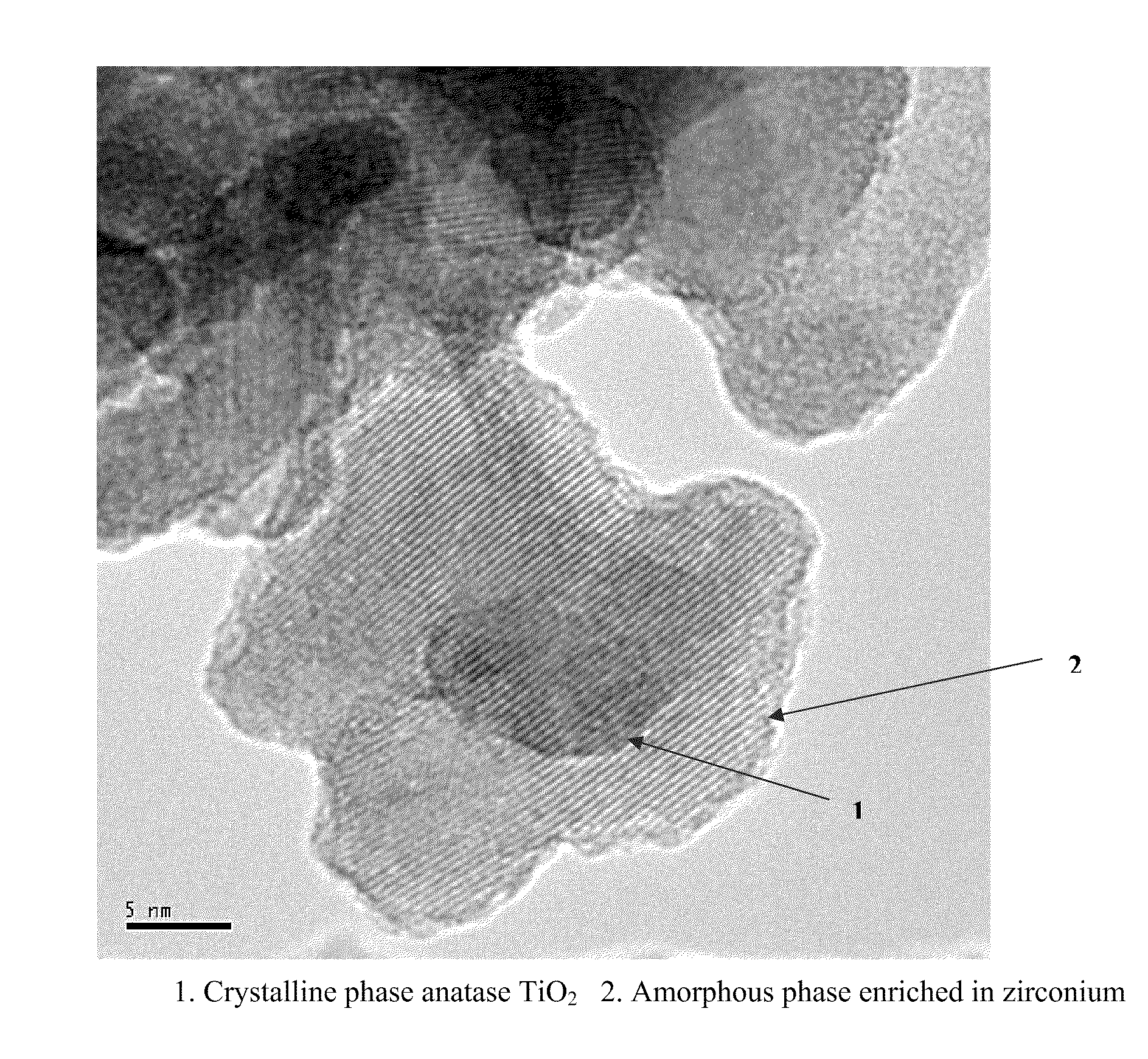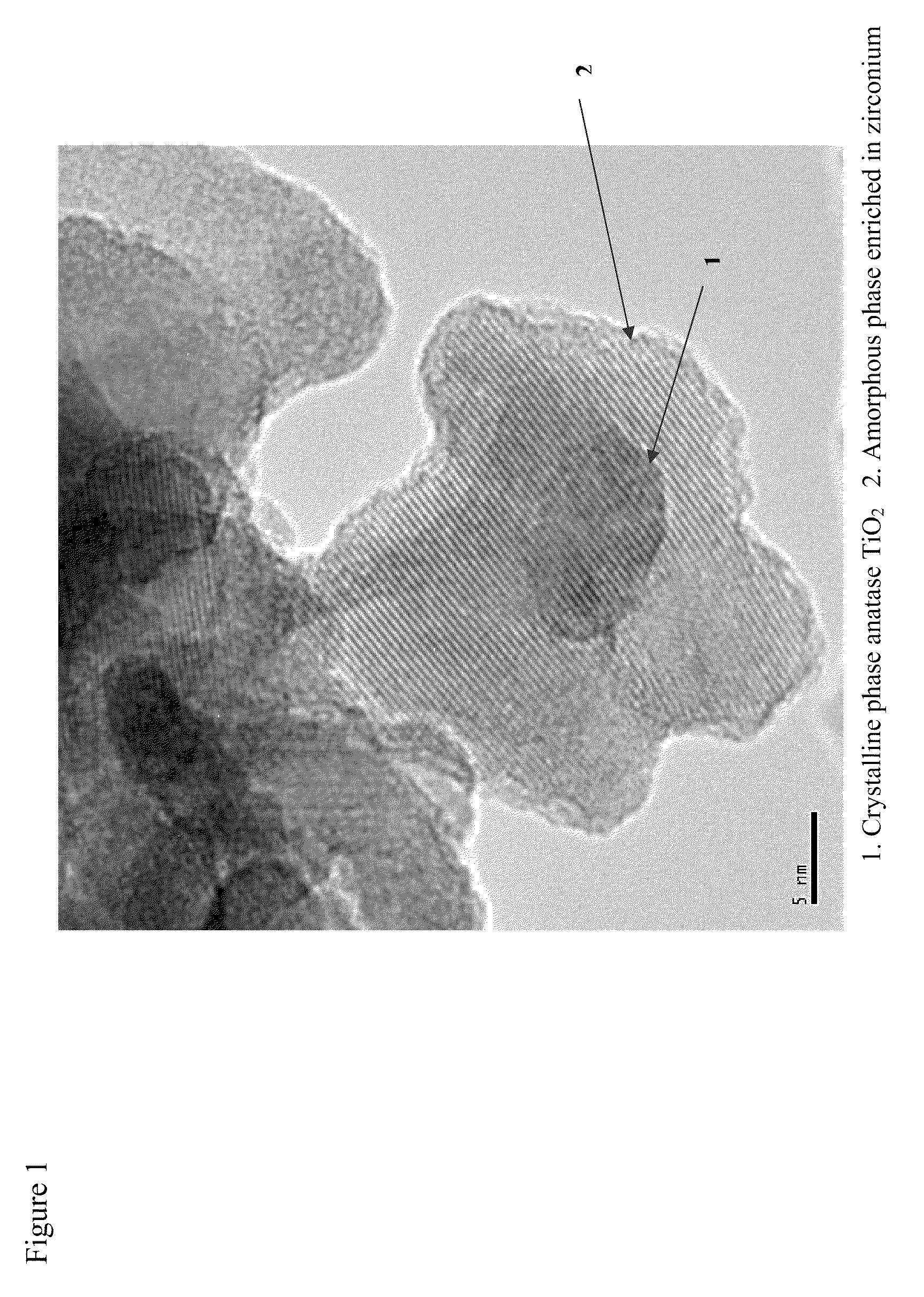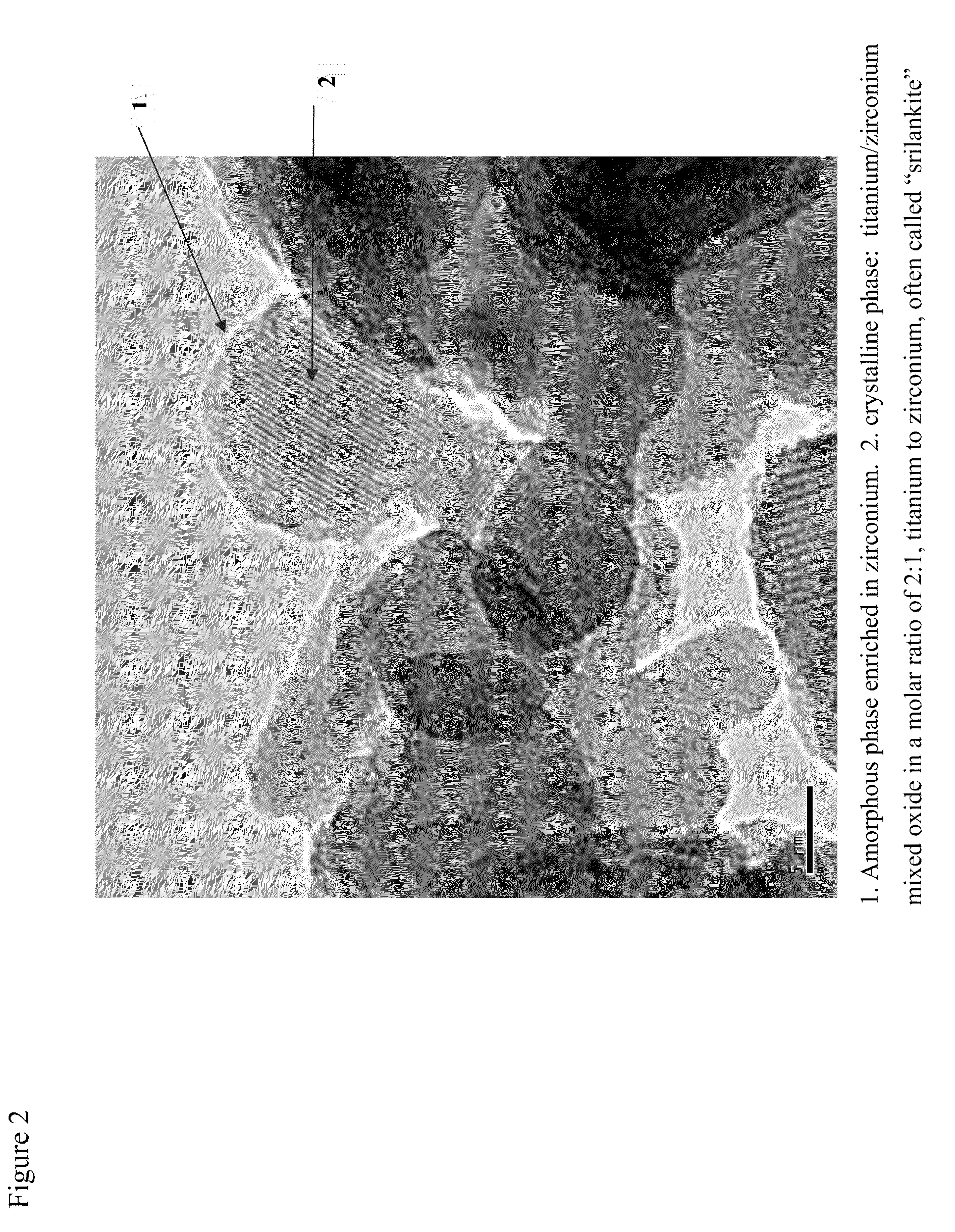Mobile DeNOx catalyst
a technology of deno-type catalysts and mobile deno-type catalysts, which is applied in the field of deno-type catalysts, can solve the problems of limited capacity, disadvantage, and unsatisfactory initial catalysts, which employ platinum or platinum group metals
- Summary
- Abstract
- Description
- Claims
- Application Information
AI Technical Summary
Benefits of technology
Problems solved by technology
Method used
Image
Examples
example 1
Precipitation of TiO2 / ZrO2 Porous Support
[0136]A first solution comprising titanyl sulfate and zirconyl sulfate is prepared by mixing 1281 grams of a TiOSO4 solution (10.1 wt. % as TiO2) with 1143.2 grams of a ZrOSO4 solution (7.5 wt. % as ZrO2) in a 2 liter vessel for 10 minutes. A second solution is prepared by diluting 6.4 mL of a tetramethylammonium silicate solution (16% w / v) to a volume of 940 mL with water. Co-precipitation is carried out by adding the first solution at a rate of 20 mL / min. and the second solution at a rate of 10 mL / min. to a continuously stirred tank reactor while simultaneously adding concentrated ammonium hydroxide to maintain the pH at 6.0. The mixing vessel is stirred at 450 revolutions per minute (rpm) using a standard mixer until precipitation is initiated and the viscosity increases. Once precipitation begins, the mixing rate is increased to 550 rpm. Product formed during the early states of mixing is discarded. After steady state is established, the ...
example 2
Catalyst Preparation and Hydrothermal Treatment
[0152]A solution of iron and manganese salts was prepared by dissolving 0.68 gram of iron (III) sulfate [Fe2(SO4)3*6H2O] and 0.16 gram of manganese (II) sulfate tetrahydrate [Mn(II)(SO4)*4H2O] into 20 ml water. The iron and manganese solution was added to the support prepared in Example 1 which was suspended in 20 ml water using agitation and a second vessel and allowed to mix for 15 min. The pH was then adjusted to 8.0 by slowly adding dilute ammonium hydroxide. Finally 0.37 g of ammonium bicarbonate was added to the slurry. At the end of 30 minutes of mixing the mixture was filtered and dried for 6 hrs at 100° C. followed by 6 hrs calcination at 600° C.
[0153]Samples of the catalyst are treated under hydrothermal conditions by exposing them to a flow of nitrogen saturated with 10% water vapor at 750° C. for 16 hours.
Example 3
Deposition of 6% Mn on TiO2 / ZrO2 Porous Support
[0154]Ten grams of a TiO2 / ZrO2 catalyst support particles compris...
example 3
Catalytic Activity of Inventive Catalysts
Percent NOx conversion is calculated in the following manner:
Conversion=100%×[1−{(NO+NO2)o / (NO+NO2)i}]
Where:
(NO+NO2)i=The total concentration of NO and NO2 at the inlet of the reactor
(NO+NO2)o=The concentrations of NO and NO2 at the outlet of the reactor
Percent NH3 selectivity is calculated in the following manner:
Selectivity=100%×[{(NO+NO2)I−(NO+NO2)o} / (NH3 i+NH3 o)]
Where:
NH3 i=The concentration of ammonia at the inlet of the reactor
NH3 o=The concentration of ammonia at the outlet of the reactor
[0155]Catalysts of the invention comprising approximately 6% Mn by weight on the inventive TiO2 / ZrO2 porous support material were evaluated for activity in the catalytic reduction of NO. Several catalysts prepared in the manner described in Example 1, with TiO2 / ZrO2 support particles with varying molar ratios of Ti to Zr, both with and without deposition of titanium on the mixed TiO2 / ZrO2 support. The catalysts were tested in the powder form without f...
PUM
| Property | Measurement | Unit |
|---|---|---|
| diameter | aaaaa | aaaaa |
| conductivity | aaaaa | aaaaa |
| temperature | aaaaa | aaaaa |
Abstract
Description
Claims
Application Information
 Login to View More
Login to View More - R&D
- Intellectual Property
- Life Sciences
- Materials
- Tech Scout
- Unparalleled Data Quality
- Higher Quality Content
- 60% Fewer Hallucinations
Browse by: Latest US Patents, China's latest patents, Technical Efficacy Thesaurus, Application Domain, Technology Topic, Popular Technical Reports.
© 2025 PatSnap. All rights reserved.Legal|Privacy policy|Modern Slavery Act Transparency Statement|Sitemap|About US| Contact US: help@patsnap.com



